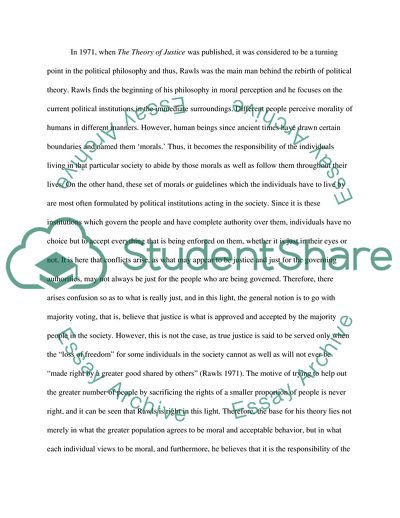Cite this document
(A Theory of Justice Book Report/Review Example | Topics and Well Written Essays - 2000 words, n.d.)
A Theory of Justice Book Report/Review Example | Topics and Well Written Essays - 2000 words. https://studentshare.org/history/1807844-title-a-critical-assessment-of-rawls
A Theory of Justice Book Report/Review Example | Topics and Well Written Essays - 2000 words. https://studentshare.org/history/1807844-title-a-critical-assessment-of-rawls
(A Theory of Justice Book Report/Review Example | Topics and Well Written Essays - 2000 Words)
A Theory of Justice Book Report/Review Example | Topics and Well Written Essays - 2000 Words. https://studentshare.org/history/1807844-title-a-critical-assessment-of-rawls.
A Theory of Justice Book Report/Review Example | Topics and Well Written Essays - 2000 Words. https://studentshare.org/history/1807844-title-a-critical-assessment-of-rawls.
“A Theory of Justice Book Report/Review Example | Topics and Well Written Essays - 2000 Words”. https://studentshare.org/history/1807844-title-a-critical-assessment-of-rawls.


